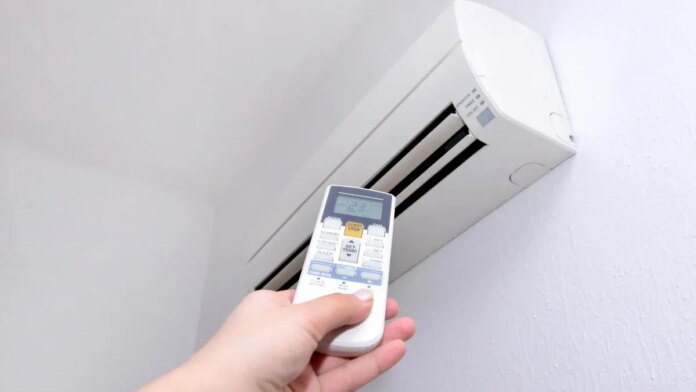
BEE has also called on manufacturers to set 24°C as the default factory setting in all new AC units. | Photo Credit: iStockphoto
As India confronts soaring summer temperatures and escalating electricity demand, Chennai has been placed at the forefront of a nationwide energy conservation campaign launched by the Bureau of Energy Efficiency (BEE), under the Union Ministry of Power.
The initiative, aims to promote responsible air conditioner usage, urging both households and businesses to set their ACs to a default temperature of 24°C as a key step toward reducing power consumption and supporting national climate goals.
With over 1.35 crore residents and a vast network of commercial establishments, Chennai’s energy consumption has become central to India’s broader climate action and sustainability efforts. In an official statement, BEE highlighted the city’s critical role in shaping the country’s energy future.
Milind Deore, Secretary of BEE, noted that Chennai’s energy usage patterns have a direct impact on national power stability and climate goals. “A collective shift to 24°C AC settings could be a game-changer,” he said, while calling for an aggressive awareness campaign led by Tamil Nadu’s State Designated Agency (SDA), TANGEDCO.
According to BEE estimates, increasing the AC temperature by just one degree can reduce electricity consumption by up to 6 per cent. If air conditioners across the country are set to 24°C, the potential benefits include saving up to 20 billion units of electricity annually, reducing power costs by ₹10,000 crore, and cutting carbon emissions by 8.2 million tonnes.
recommended practice
In addition to reducing energy use, maintaining air conditioners at 24°C offers several other benefits. These include up to 24 per cent lower electricity consumption compared to settings of 20°C, reduced monthly bills, enhanced thermal comfort, lower carbon footprints, and extended appliance lifespan. To support these outcomes, BEE recommends practices such as using ceiling fans alongside ACs, insulating rooms to retain cooling, and installing programmable thermostats to optimise energy use.
BEE has also called on manufacturers to set 24°C as the default factory setting in all new AC units. The campaign places particular emphasis on high-consumption zones such as shopping malls, IT parks, hotels, airports, and government buildings. One AC unit operating for 8 to 10 hours a day can emit nearly 10 kilograms of CO₂, highlighting the urgency of the initiative from both environmental and economic standpoints.
While Chennai leads this drive in South India, the campaign is also being rolled out in other major cities including Bengaluru, Hyderabad, Visakhapatnam, and Thiruvananthapuram, Delhi, Mumbai, Kolkata, Chandigarh, Jaipur, Bhopal, and Patna. BEE stressed that fostering informed energy behaviour in urban centres is key to building India’s long-term climate resilience and sustainable development.
“This initiative is not just about conserving electricity—it’s a nationwide call for sustainable living and responsible energy behaviour,” said Deore.
Published on May 4, 2025



